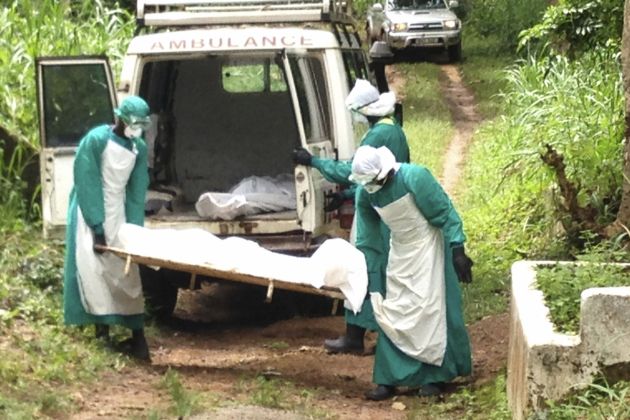Ebola plagues West Africa in worst ever outbreak

Around 800 people in Guinea, Sierra Leone and Liberia have been infected by Ebola since its symptoms were first observed four months ago, the World Health Organization says, with more than 60 percent of them dying.
At least 759 people in Guinea, Sierra Leone and Liberia have been infected by Ebola since its symptoms were first observed four months ago, the WHO said on July 3 and at least 467 of them have died - a 61.5 percent mortality rate.
Officials from Ivory Coast, Mali, Senegal, Gambia and Guinea-Bissau, along with Ghana as well as the Central African Countries of Uganda and the Democratic Republic of Congo, attended.
Guinea has borne the brunt of the epidemic with 303 deaths since April. At the same time, Liberia and Sierra Leone recorded a rapid increase in the number of deaths in the past month.
The Ebola virus outbreak is now classified as the worst outbreak in history. And medical officials say there is a strong possibility that the virus will spread across West Africa.
Responding, the World Health Organization, health authorities from 11 West African countries and personnel from disease control centers from the United States, Britain and the European Union, held a two-day crisis meeting in Accra, Ghana during the week to discuss the crisis.
"This is the most complicated Ebola outbreak ever because it is spreading so fast in both urban and rural areas," said Keiji Fukuda, assistant director-general for health security at the WHO, Agence France-Presse reported.
"This is not a unique situation - we have faced it many times - so I'm quite confident we can handle this.
"But this is the most complicated Ebola outbreak ever because it is spreading so fast in both urban and rural areas," he said.
The disease is spreading in the Guinea capital Conakry and its Sierra Leone counterpart, Freetown, while Monrovia in Liberia is also at risk.
Jeremy Farrar, a professor of tropical medicine and director of The Wellcome Trust, a global health charity, told Reuters news agency that people at high risk should be offered experimental medicines, despite the drugs not having been fully tested.
"We have more than 450 deaths so far, and not a single individual has been offered anything beyond tepid sponging and 'we'll bury you nicely'," Farrar told Reuters in an interview. "It's just unacceptable."
TRADITION AND SUPERSTIION BLAMED
Despite efforts to counter the lethal disease, U.N. and other health professionals blame tradition, superstition, as well as poor public health infrastructure as the major reasons why the disease has spread rapidly.
A Médecins Sans Frontières drug center in southern Guinea was attacked in early April as residents believed MSF was bringing the disease to the people.
In another development, Liberia's Chief Medical Officer, Dr. Bernice Dahn, warned churches in the country on June 26 that are keeping people infected with the Ebola virus to desist immediately.
Dr. Dahn noted that people infected of the virus are being kept in door by churches on grounds that patients can be healed through prayer, allafrica.com reported.
She said that since the outbreak of the virus, many churches had considered the epidemic to be more spiritual rather than being medical.
The disease can be difficult to trace in its early stages. Few health professionals in the region are aware the disease is already taking place. Outbreaks may be common in Central Africa, but the disease has not been common in the western part.
The common symptom of having hemorrhagic fever is not even present in the early patients thus prompting doctors to give inaccurate prognoses.
The fight to end the outbreak may be a long one. But experts say it is important is to gain the people's trust and respect in the midst of this crisis.
Ebola causes fever, vomiting, bleeding and diarrhea and can kill up to 90 percent of its victims. It is highly contagious and is transmitted through blood contact and other fluids.